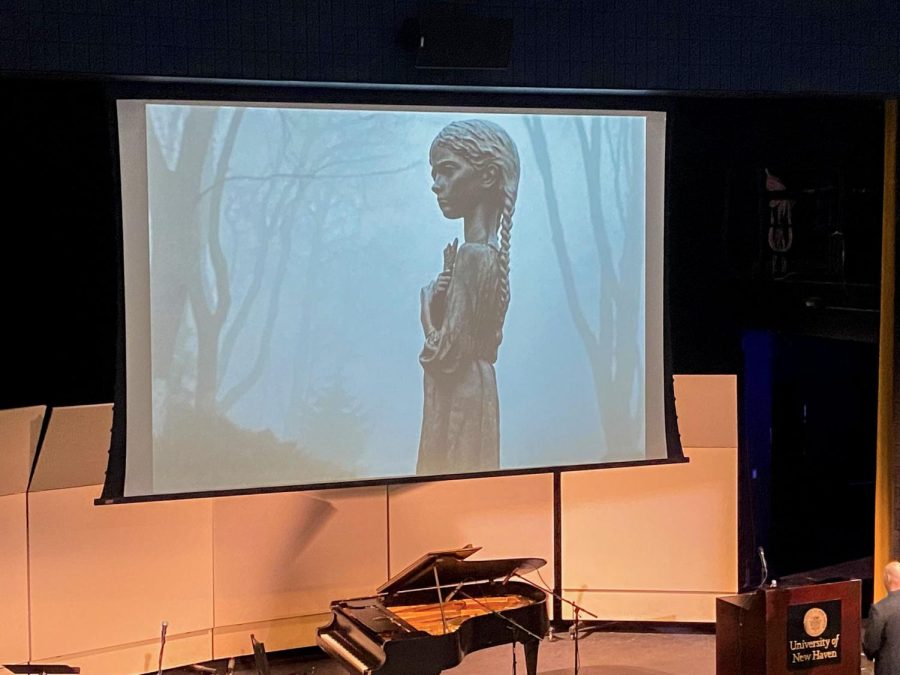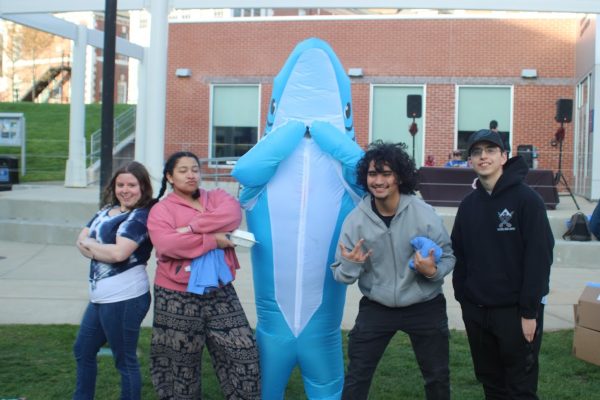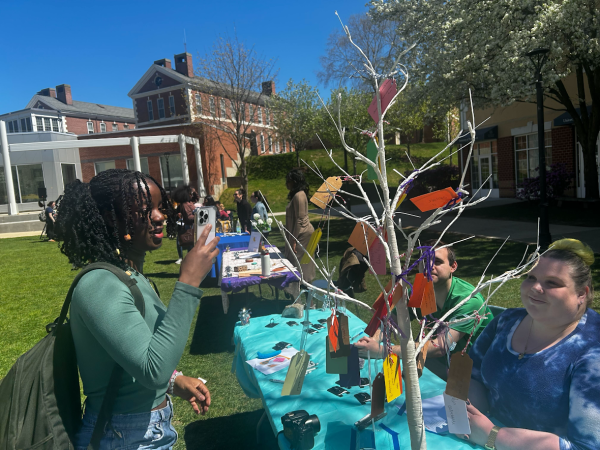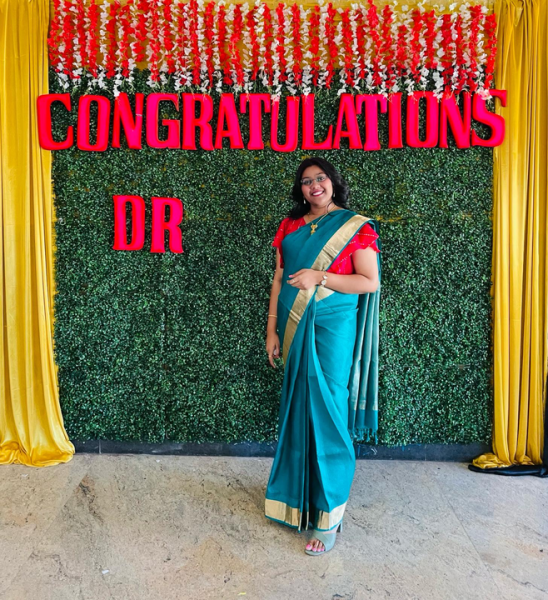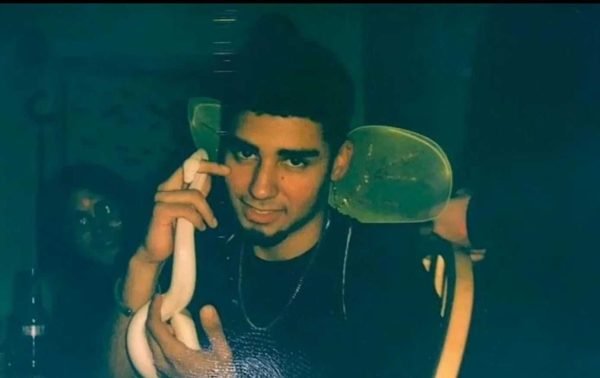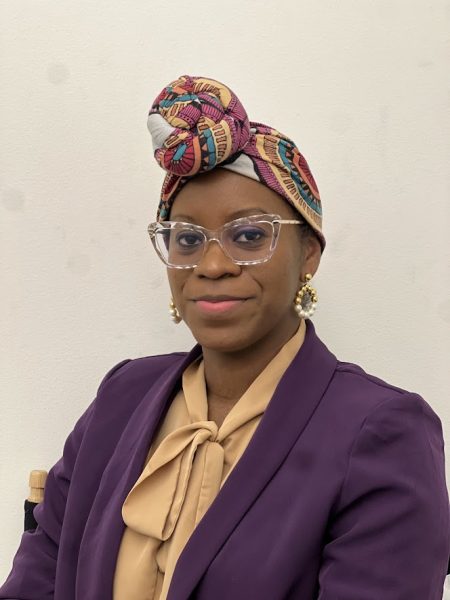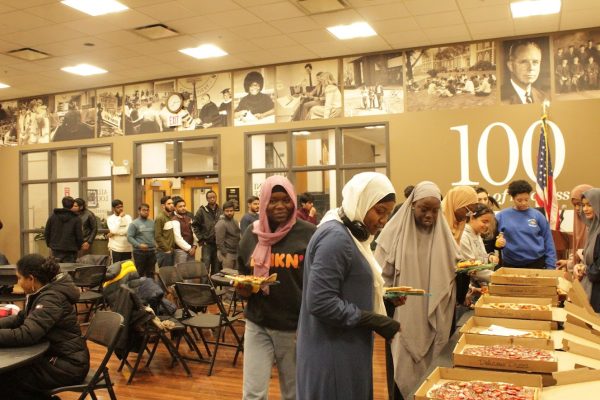Concert for Ukraine and Holodomor remembrance moves audience
Photo courtesy of Charger Bulletin/Presley DePugh.
A presentation plays during the concert for Ukraine and Holomodor remembrance, Dec. 3, 2022.
Students from the University of New Haven, along with off-campus guests, gathered in the Bucknall Theater to listen to a musical performance from Professor Victor Markiw from the university’s music department. Markiw gave moving speeches and piano performances in remembrance of the Ukrainian lives lost both in Holodomor and the ongoing Russian invasion.
The concert for Ukraine was held this past Saturday, which also marks the anniversary of Holodomor – a genocide that spanned from 1932-1933 when Joseph Stalin, a dictator of the Soviet Union, murdered 4 million Ukrainians during that time through engineered starvation. Saturday’s event marks the fourth annual Holodomor Remembrance Day event at the university.
“This year’s event also focuses on the genocide being committed today, by the Russian Federation,” said Markiw.
The event began with a speech by Bradley Woodworth, an associate professor of history at the university. Woodworth discussed the atrocities inflicted on Ukrainians by Russia, both nearly a century ago and in the present. He then thanked Markiw for holding the concert and performing music for guests and said, “I hope we can all look at the beauty we create.”
Another speech was given by David A. Schroeder, the associate dean of the Henry C. Lee College of Criminal Justice and Forensic Science. Schroeder urged the audience to “never stop listening to the voices of the past.”
Before the performance began, a memorial blessing was held by Iura Godenciuc, a Ukrainian Catholic priest. This blessing was for victims of the Holodomor, which translates to “death by starvation,” and to the victims of Russia’s ongoing invasion of Ukraine.
Markiw performed compositions by six musicians, three of which were Vasyl Barvinsky, Mykola Lysenko and Myroslav Skoryk, who were Ukrainian composers and pianists. Markiw recalled learning the song “Melody,” which he performed, from Skoryk. The professor transitioned from “Melody” to “He has Gone” by Canadian jazz musician, Oscar Peterson, by discussing Skoryk’s love for Peterson’s work. And Markiw said that jazz music is popular in Ukraine.
The final composition that Markiw performed was Polish musician Frederic Chopin’s “Etude,” which Chopin composed around the time of Russia’s invasion of Poland from 1830-1831. This final song was dramatic and fast-paced throughout, unlike earlier songs which had milder paces and tones. Standing ovations from the audience at the end of this performance marked the success of the event.
In between Markiw’s performances of each musicians’ compositions, he talked about some of the Ukrainian citizens either severely affected by or killed by Russian action. One of which was four-year-old Liza Dmytriyeva, one of 23 Ukrainians killed by a Russian missile strike in Vinnytsia this year. In an interview conducted prior to the concert, Markiw said, “For many, Holodomor is something they may have not heard about, so it will bring to them some awareness and the hope that they can do something about not allowing, or at least being proactive in ending these atrocities.”
Monetary donations can be made to St. Michael’s Ukrainian Humanitarian Relief Fund to support Ukrainian citizens affected by the current war with Russia.
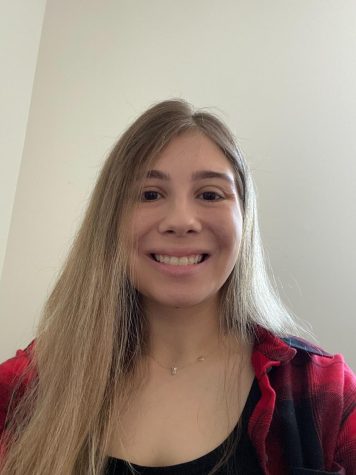
Presley DePugh is in the class of 2024 and majors in Communications with a concentration in TV/Video Production. She is also a Charger Ambassador and a...

